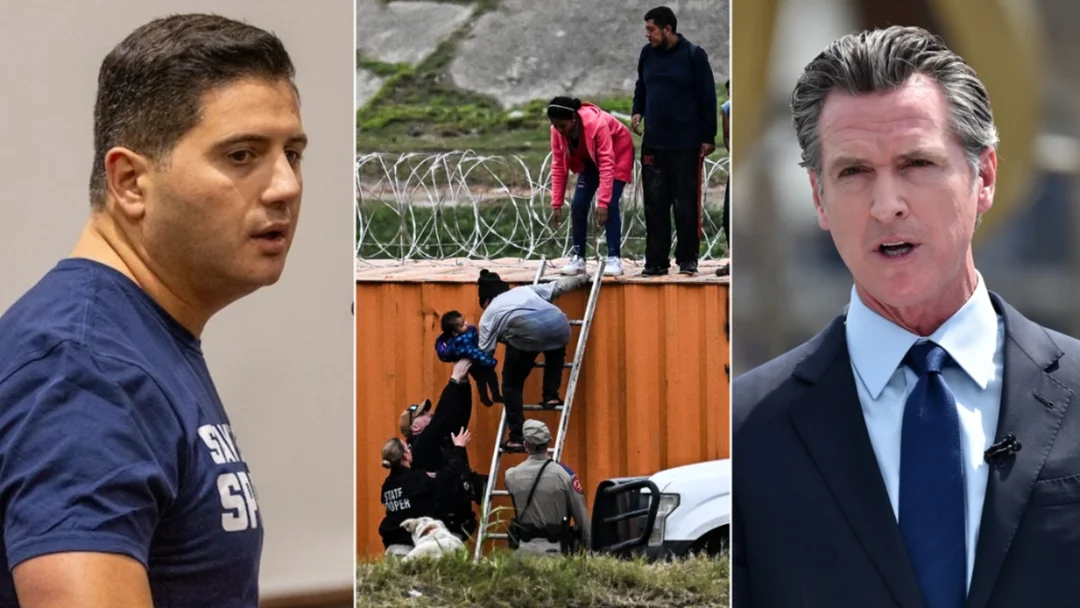
Is California’s Sanctuary Wall Starting to Crumble? Inside the Bold Federal Crackdown
In a move that could reshape state-federal relations, federal authorities are challenging California's longstanding sanctuary policies with a new operation designed to prioritize public safety. Operation Guardian Angel represents a significant escalation in the fight against criminal activity linked to undocumented immigrants, raising questions about the balance between state laws and national security imperatives.
The initiative, launched by the U.S. Attorney's Office for the Central District of California, targets individuals held in county jails who are in the country illegally and have criminal records. By issuing federal arrest warrants, officials aim to bypass restrictions imposed by California's sanctuary state laws, which limit local cooperation with immigration enforcement. United States Attorney Bill Essayli has been vocal about the operation's necessity, stating, "Even the worst criminal aliens in state custody are frequently released into the community because California’s sanctuary state policies block cooperation with federal law enforcement." This approach underscores a growing frustration with policies that some argue prioritize protection over prosecution.

Operation Guardian Angel began on May 10, and within days, it resulted in the arrest of 13 defendants across counties like Los Angeles and Orange. The program involves a task force comprising agencies such as ICE, HSI, DEA, FBI, ATF, and Border Patrol, who scan criminal databases daily to identify eligible individuals. Essayli explained the strategy in an exclusive interview: "We're going to flood the system with warrants for criminal illegal immigrants in county jails... they can ignore a detainer, but they cannot ignore a criminal arrest warrant." This methodical process allows for safe transfers from state custody, reducing risks associated with post-release apprehensions.
A stark example highlighting the operation's urgency is the case of José Cristian Saravia-Sánchez, a 30-year-old from Mexico accused of fatally shooting a man in Inglewood in February 2025 during a catalytic converter theft. Despite multiple prior arrests and a deportation history, state laws prevented compliance with federal detainers, allowing him to remain in the community. Critics argue that such cases expose vulnerabilities in California's sanctuary framework, which was established under the California Values Act of 2017. This law bars local agencies from using resources for immigration enforcement, effectively shielding individuals from federal action in many scenarios.
Comparatively, the operation marks a shift from the Biden administration's approach, where felony re-entry cases were rarely prosecuted—only 17 filed in two years in Los Angeles. Under this new directive, authorities plan to issue up to 50 warrants weekly, potentially serving as a model for other sanctuary jurisdictions nationwide. While border crossings have decreased, the focus on interior enforcement aims to enhance community safety, with Essayli warning that interference from local authorities could lead to consequences.

As this operation unfolds, it prompts deeper analysis: Does it effectively neutralize sanctuary protections without overstepping legal boundaries? The implications for civil liberties and federal-state dynamics are profound, potentially influencing similar policies across the U.S.
In conclusion, Operation Guardian Angel not only aims to remove dangerous individuals from communities but also challenges the core tenets of California's sanctuary state status. This development could mark a turning point in immigration enforcement. What do you think—will this strategy lead to safer streets or spark new debates on rights and borders? Share your views in the comments below and help spread this story to foster broader discussion.